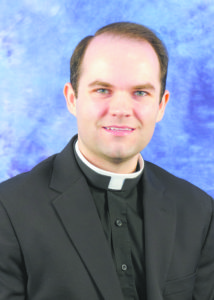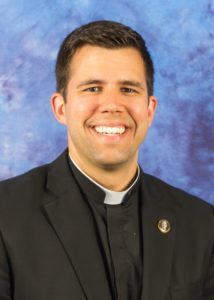By Aaron Williams
For Lutherans across the world, this past October 31 was more than just your average Halloween. It was on Oct. 31, 1517, that Martin Luther nailed his famous 95 Theses to the door of All Saint’s Church in Wittenberg, Germany. Now, the countdown has begun leading up to the five-hundredth anniversary of Luther’s split with the Catholic Church and the start of modern-day Protestantism.
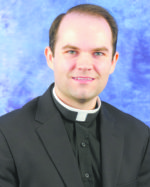
Williams
This year is a good opportunity for all Christians, both Protestant and Catholic, to join together in prayer for unification so that “all may be one” (John 17:21) as our Lord intended of his church from the beginning. But, this anniversary also provides for Catholics a moment to reflect on those differences which still cause separation. Especially for we who live in a overwhelmingly Protestant area, it can be helpful to know where the Catholic Church stands on significant issues which divide us from our protestant brothers and sisters.
One such issue is the matter of grace. Grace is not something most Christians often give much thought, but it is a word which we, perhaps deafly, hear preached, read in scripture, or sung in hymns. So, what is “grace”?
The Catechism of the Catholic Church (no. 2003) states, “Grace is first and foremost the gift of the Spirit who justifies and sanctifies us.” Grace is that gratuitous gift of God which purifies us and assists us in living the Christian life. Understanding the role of grace requires us to ask why we need grace in the first place and to answer that question we have to consider the role of sin in our lives.
For Catholics, all sin has its root in the original sin of Adam and Eve. God commanded them, “You must not eat of the tree of the knowledge of good and evil…lest you will certainly die” (Genesis 2:17). But, we know that Adam and Eve did eat of this fruit and so they and all their children died. The church teaches that the guilt of the same sin of our first parents has been passed down from generation to generation, so that all humanity shares in this guilt. This sin was so significant that it damaged the very nature of humankind so that we were no longer able to do good works.
But, God the Father, in his infinite mercy, gave up his only Son and by the sacrifice of Christ on calvary, grace entered the world — grace enough that for all who are baptized, the guilt of original sin is totally wiped away and human nature is restored to its justified state. Men and women are made sons and daughters of God and are therefore holy and able to freely choose to do good works with the help of God’s grace.
Luther, however, did not share this view. It was his argument that human nature was so harmed by Adam and Eve’s sin that Christ’s sacrifice only served to declare all of us “justified” — even though we remained guilty of sin and incapable of doing good works. For Luther, humankind is incapable of freely choosing to do good things and even though every man and woman is sinful and their nature is turned towards evil, those who have faith in Christ will still be saved on the last day.
His view is similar to that of a child who, instead of sweeping the house, pushes the dust under a rug. For Luther, God does not restore our nature to its previous state but simply declares us “justified” — so that we appear holy from the exterior, while are still guilty of original sin interiorly.
Catholics, however, are so confident that baptism regenerates us from our sinful state that we insist even the smallest among us (infants) be baptized, even though they may not understand what it means at the time. It is a sacrament which fundamentally heals our nature interiorly and not simply from an external appearance.
For Catholics, baptism gives us the gift of faith, by which we may be saved. And since we are all made a part of the Mystical Body of Christ in baptism, all of us are capable of doing good works because we are enabled by Christ. In the words of St. Paul, “It is no longer I, but Christ who lives in me” (Galatians 2:20).
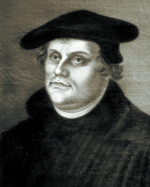
Martin Luther, a German monk and key figure in the Protestant Reformation, is depicted in this painting at a church in Helsingor, Denmark. Pope Francis will visit Sweden Oct. 31-Nov. 1 for commemorations of the 500th anniversary of the Protestant Reformation. (CNS photo/Crosiers) See VATICAN-LETTER-SWEDEN AND SWEDEN-TRIP-REFORMATION Oct. 20, 2016.
Moreover, since Christ enables us to do good works and all Christ’s works are pleasing before the Father, our own works can merit us a greater capacity for grace. This is not to say that Catholics think of salvation as if it is “bought” by good works. Humankind is justified once and for all by Christ’s sacrifice through baptism, but after that initial grace of justification, each of us is able to merit more grace to assist us in living a virtuous life and to have a greater capacity to experience God in heaven. Thus, St. Paul writes, “God will render to each according to his works” (Romans 2:6). After baptism, God gives more grace to each person according to the works they do through Christ, because everything that Christ does is pleasing to the Father.
As we approach the 500th anniversary of the Reformation, it would be good for each of us to reflect on those things which make us Catholic — our theology, our liturgy, our faith in the leadership of the church. There are so many blessings in our faith which so few of us understand. Maybe this year each of us can buy a copy of the Catechism of the Catholic Church and commit to reading a little bit each day. And most importantly, we should each pray that “all may be one” once more.
(Aaron Williams is a third-year theologian studying at Notre Dame Seminary in New Orleans. He and his classmate, Nick Adam, will be ordained to the the transitional diaconate in the Spring.)
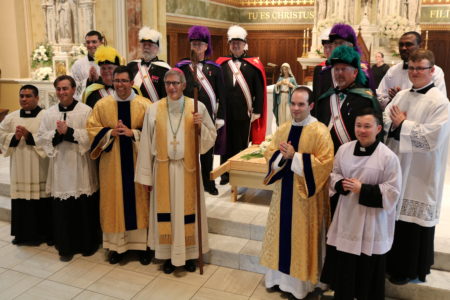

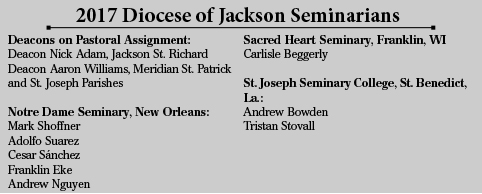
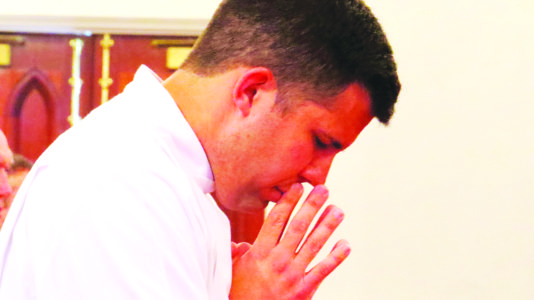 do.
do.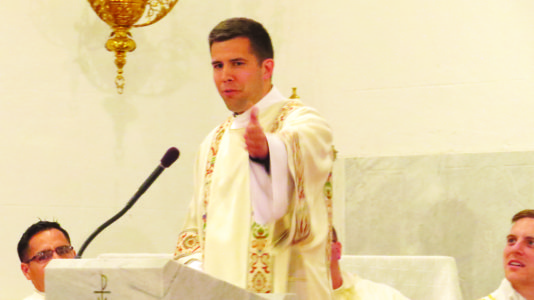 s call here.
s call here.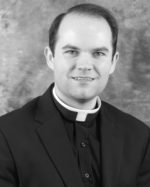 The twentieth century liturgical theologian, Romano Guardini, devoted the fifth chapter of his famous “Spirit of the Liturgy” to discuss the seeming lack of purpose in the liturgy. He raises a series of important questions which are at the heart of why so many people find the “extravagance” of the liturgy a form of useless pageantry. Why is it necessary, for example, that a Church be richly decorated or that a priest wear vestments?
The twentieth century liturgical theologian, Romano Guardini, devoted the fifth chapter of his famous “Spirit of the Liturgy” to discuss the seeming lack of purpose in the liturgy. He raises a series of important questions which are at the heart of why so many people find the “extravagance” of the liturgy a form of useless pageantry. Why is it necessary, for example, that a Church be richly decorated or that a priest wear vestments?